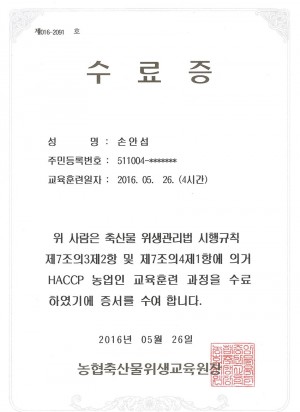[앞다리살]In Which Location To Research Adhd Diagnosis Online
101
2023.03.08 03:37
짧은주소
본문
How to Get Help For adhd diagnosis surrey in the UK
ADHD can be a challenge to recognize. While the process may be lengthy and difficult it is possible to get assistance.
The process starts with being referred to an NHS ADHD clinic. This could be through your GP or by a community mental health team in certain areas.
Waiting for a long time
According to an all-party parliamentary group in the UK has a postcode lottery in the waiting time for children diagnosed with adhd diagnosis lincoln. In some cases, it could take up to two years for a child diagnosed with ADHD to be seen. The data was obtained through an information request for freedom of information and show that even within the NHS there is a significant difference between waiting times across the country.
The typical wait time to receive a diagnosis in the UK is approximately 12 months, but it can be longer, especially in rural areas. For instance, in Somerset the wait time for adhd Diagnosis chichester an GP in order to refer a child diagnosed with ADHD is four months and the wait time is close to two years for Cheshire and Wirral.
This is due to the fact that it is difficult to determine ADHD and a doctor will need to refer you to an expert neurobehavioural psychiatrist. This usually means you will be placed on a waiting list for your assessment.
Another factor that can affect the length of your wait is your eligibility for free NHS treatment, which is different depending on where you reside. You should check with your GP and your local mental health professional about this.
Your GP will be able to guide you through the steps to take next, including obtaining an appointment and filling out the required paperwork. They might also be able to help you locate a specialist , or suggest an appropriate local ADHD peer support program.
Your doctor can also advise you whether you should begin an individualized therapy program such as a parent training or education program. These programs assist parents in manage their child's behavior better.
Ask your GP whether they are able to refer you to a Right To Choose assessor who will offer an assessment of ADHD or autism (or both) as a neurodevelopmental assessment. They can be located across England and may prefer face-to-face assessments but they can also accept referrals from online sources.
The CAMHS City ADHD and Hackney ADHD teams have been working together on a quality improvement program to improve their services. They used the Plan-Do-Study -Act cycles to test new ideas , and have used the QI model developed by the East London Foundation Trust (ELFT). The average wait time was cut from 28 weeks to 12 weeks from September 2018 which was 12 weeks.
Referring to a friend
If you suspect that ADHD could be the cause to some of your issues If you suspect that ADHD is the cause, you might want to ask your GP to refer you to an assessment. The doctor will discuss your issues with you and will take an in-depth background. They might also offer you some tests to help you determine the condition.
The discussion should be open and honest with your GP. The doctor should not be able to judge you solely based on the signs you're experiencing. Instead the doctor should understand how the disorder affects your life and that of your family.
They should ask you a variety of questions and explain to you how ADHD affects you and the reasons they recommend treatment for it. They should also speak to you about how your ADHD symptoms impact on your work, relationships and adhd diagnosis chichester social life.
If you believe you've met the requirements for ADHD, they should write a referral letter to an adult ADHD specialist. The NICE Guidelines and your symptoms list should be attached to this letter.
ADHD diagnosis is not something that all GPs are educated in. You should seek the advice of an expert psychiatrist, and preferably one who is a neurobehavioral psychiatrist. Only a specialist can accurately diagnose and evaluate the condition.
You can also obtain an appointment with your local NHS in the UK. However, the process can be lengthy and frustrating.
You may request a referral for an assessment through the NHS Right to Choose scheme (RTC). This will make the process more simple. This lets you get your diagnosis from an alternative provider with the shorter waiting time.
Ask your GP to provide the contact details of an RTC provider in your area. You can also search online for a reputable RTC service that provides assessments and prescribes medication.
Once you have found a provider, email them to let them that you'd prefer to be referred under the RTC scheme. A lot of providers will provide a template letter you can download and use.
Assessment by a Psychiatrist
A psychiatric examination for ADHD typically takes between 1 to 3 hours. The assessment involves a detailed discussion with an expert in neurobehavioral medicine. The assessment will consider your entire life's experiences with ADHD symptoms, beginning when you were a kid and also how they affect you in your daily life today. It is important to feel at ease and able to talk about past experiences or issues. It is helpful to consult your physician in advance in case you are uncertain about any questions they might ask.
Your GP will make an appointment to meet with one of our specialists to conduct an assessment. You will then be asked to complete a set of pre-assessment questionnaires and answer any questions your consultant asks about your health or background. You must be prepared for a lengthy appointment and we strongly suggest to take your partner or other family members with you.
You will also be required to disclose any other mental health issues that you're experiencing simultaneously as ADHD such as anxiety or depression. To rule out any other possible causes an examination of your body is also possible.
The psychiatrist will then go over the checklist of ADHD symptoms from the Diagnostic and Statistical Manual of Mental Disorders, DSM-V, or ICD-10. This information is used to establish a diagnosis.
To be eligible for a diagnosis of ADHD they must exhibit six or more signs that affect their daily life and have been present for some time. This is not a definitive number, and some people might have fewer than six symptoms.
International guidelines and symptom thresholds are in place to ensure that people with adhd diagnosis chichester are diagnosed. It is not uncommon for ADHD sufferers to be diagnosed with the condition without symptoms or with moderate or milder forms of the condition.
Medication
There are many types of medications. They can be employed to treat, stop or prevent disease, reduce symptoms or diagnose an illness. Certain medicines are derived from animals and plants while others are derived from man-made compounds. Tablets, capsules, and liquids are among the most popular types of medication.
Some medications can be taken by mouth, while others are administered through injection devices, such as pen guns. Most medications require an appointment with your doctor before they can be prescribed.
ADHD sufferers may benefit from medication to aid in their concentration and less impulsive. It can also help them communicate better, master new skills and better manage their time. Certain medicines might not be effective for everyone.
The most often prescribed medication for adults with ADHD is methylphenidate. However there are other medications available, including dexamphetamine as well as atomoxetine. Methylphenidate, which is a central nervous systems stimulant as well as dexamphetamine (and Atomoxetine) are sedatives.
A small amount of research has demonstrated that ADHD patients could benefit from medicines that do not contain the active ingredient. These are known as "dummy pills" or "placebos. However, it's unclear whether this is a good idea, or even a good idea, for treating ADHD.
In the UK, GPs are usually accountable for prescribing ADHD medication to patients in shared-care protocols. They are required to help patients suffering from ADHD and their co-morbidities. They might also be required to periodically review prescription patterns (Hall and. al. 2015).
General practitioners are also "gatekeepers" to specialist services that can offer young people with ADHD and comorbidities ongoing treatment should they require it. However, these services may be difficult to access for many teenagers suffering from mental health problems (Hall and colleagues. 2015).
There is a need to improve the medical treatment offered by doctors for ADHD in the UK. This is especially true for adolescents who are frequently diagnosed with ADHD as children. They could also be suffering from multiple comorbidities such as anxiety, depression conduct disorder, depression, or conduct disorder. This is due to the fact that these issues can make it difficult for GPs to comprehend the extent of a patient's problems and prescribe the most effective drugs.
ADHD can be a challenge to recognize. While the process may be lengthy and difficult it is possible to get assistance.
The process starts with being referred to an NHS ADHD clinic. This could be through your GP or by a community mental health team in certain areas.
Waiting for a long time
According to an all-party parliamentary group in the UK has a postcode lottery in the waiting time for children diagnosed with adhd diagnosis lincoln. In some cases, it could take up to two years for a child diagnosed with ADHD to be seen. The data was obtained through an information request for freedom of information and show that even within the NHS there is a significant difference between waiting times across the country.
The typical wait time to receive a diagnosis in the UK is approximately 12 months, but it can be longer, especially in rural areas. For instance, in Somerset the wait time for adhd Diagnosis chichester an GP in order to refer a child diagnosed with ADHD is four months and the wait time is close to two years for Cheshire and Wirral.
This is due to the fact that it is difficult to determine ADHD and a doctor will need to refer you to an expert neurobehavioural psychiatrist. This usually means you will be placed on a waiting list for your assessment.
Another factor that can affect the length of your wait is your eligibility for free NHS treatment, which is different depending on where you reside. You should check with your GP and your local mental health professional about this.
Your GP will be able to guide you through the steps to take next, including obtaining an appointment and filling out the required paperwork. They might also be able to help you locate a specialist , or suggest an appropriate local ADHD peer support program.
Your doctor can also advise you whether you should begin an individualized therapy program such as a parent training or education program. These programs assist parents in manage their child's behavior better.
Ask your GP whether they are able to refer you to a Right To Choose assessor who will offer an assessment of ADHD or autism (or both) as a neurodevelopmental assessment. They can be located across England and may prefer face-to-face assessments but they can also accept referrals from online sources.
The CAMHS City ADHD and Hackney ADHD teams have been working together on a quality improvement program to improve their services. They used the Plan-Do-Study -Act cycles to test new ideas , and have used the QI model developed by the East London Foundation Trust (ELFT). The average wait time was cut from 28 weeks to 12 weeks from September 2018 which was 12 weeks.
Referring to a friend
If you suspect that ADHD could be the cause to some of your issues If you suspect that ADHD is the cause, you might want to ask your GP to refer you to an assessment. The doctor will discuss your issues with you and will take an in-depth background. They might also offer you some tests to help you determine the condition.
The discussion should be open and honest with your GP. The doctor should not be able to judge you solely based on the signs you're experiencing. Instead the doctor should understand how the disorder affects your life and that of your family.
They should ask you a variety of questions and explain to you how ADHD affects you and the reasons they recommend treatment for it. They should also speak to you about how your ADHD symptoms impact on your work, relationships and adhd diagnosis chichester social life.
If you believe you've met the requirements for ADHD, they should write a referral letter to an adult ADHD specialist. The NICE Guidelines and your symptoms list should be attached to this letter.
ADHD diagnosis is not something that all GPs are educated in. You should seek the advice of an expert psychiatrist, and preferably one who is a neurobehavioral psychiatrist. Only a specialist can accurately diagnose and evaluate the condition.
You can also obtain an appointment with your local NHS in the UK. However, the process can be lengthy and frustrating.
You may request a referral for an assessment through the NHS Right to Choose scheme (RTC). This will make the process more simple. This lets you get your diagnosis from an alternative provider with the shorter waiting time.
Ask your GP to provide the contact details of an RTC provider in your area. You can also search online for a reputable RTC service that provides assessments and prescribes medication.
Once you have found a provider, email them to let them that you'd prefer to be referred under the RTC scheme. A lot of providers will provide a template letter you can download and use.
Assessment by a Psychiatrist
A psychiatric examination for ADHD typically takes between 1 to 3 hours. The assessment involves a detailed discussion with an expert in neurobehavioral medicine. The assessment will consider your entire life's experiences with ADHD symptoms, beginning when you were a kid and also how they affect you in your daily life today. It is important to feel at ease and able to talk about past experiences or issues. It is helpful to consult your physician in advance in case you are uncertain about any questions they might ask.
Your GP will make an appointment to meet with one of our specialists to conduct an assessment. You will then be asked to complete a set of pre-assessment questionnaires and answer any questions your consultant asks about your health or background. You must be prepared for a lengthy appointment and we strongly suggest to take your partner or other family members with you.
You will also be required to disclose any other mental health issues that you're experiencing simultaneously as ADHD such as anxiety or depression. To rule out any other possible causes an examination of your body is also possible.
The psychiatrist will then go over the checklist of ADHD symptoms from the Diagnostic and Statistical Manual of Mental Disorders, DSM-V, or ICD-10. This information is used to establish a diagnosis.
To be eligible for a diagnosis of ADHD they must exhibit six or more signs that affect their daily life and have been present for some time. This is not a definitive number, and some people might have fewer than six symptoms.
International guidelines and symptom thresholds are in place to ensure that people with adhd diagnosis chichester are diagnosed. It is not uncommon for ADHD sufferers to be diagnosed with the condition without symptoms or with moderate or milder forms of the condition.
Medication
There are many types of medications. They can be employed to treat, stop or prevent disease, reduce symptoms or diagnose an illness. Certain medicines are derived from animals and plants while others are derived from man-made compounds. Tablets, capsules, and liquids are among the most popular types of medication.
Some medications can be taken by mouth, while others are administered through injection devices, such as pen guns. Most medications require an appointment with your doctor before they can be prescribed.
ADHD sufferers may benefit from medication to aid in their concentration and less impulsive. It can also help them communicate better, master new skills and better manage their time. Certain medicines might not be effective for everyone.
The most often prescribed medication for adults with ADHD is methylphenidate. However there are other medications available, including dexamphetamine as well as atomoxetine. Methylphenidate, which is a central nervous systems stimulant as well as dexamphetamine (and Atomoxetine) are sedatives.
A small amount of research has demonstrated that ADHD patients could benefit from medicines that do not contain the active ingredient. These are known as "dummy pills" or "placebos. However, it's unclear whether this is a good idea, or even a good idea, for treating ADHD.
In the UK, GPs are usually accountable for prescribing ADHD medication to patients in shared-care protocols. They are required to help patients suffering from ADHD and their co-morbidities. They might also be required to periodically review prescription patterns (Hall and. al. 2015).
General practitioners are also "gatekeepers" to specialist services that can offer young people with ADHD and comorbidities ongoing treatment should they require it. However, these services may be difficult to access for many teenagers suffering from mental health problems (Hall and colleagues. 2015).
There is a need to improve the medical treatment offered by doctors for ADHD in the UK. This is especially true for adolescents who are frequently diagnosed with ADHD as children. They could also be suffering from multiple comorbidities such as anxiety, depression conduct disorder, depression, or conduct disorder. This is due to the fact that these issues can make it difficult for GPs to comprehend the extent of a patient's problems and prescribe the most effective drugs.















댓글목록
등록된 댓글이 없습니다.